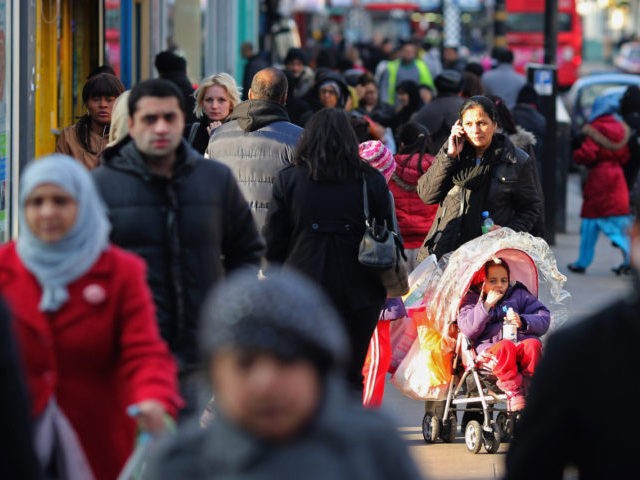A leading academic has called on the government to tackle white flight from British cities “as a national priority”, as a study reveals the white population in some areas has halved in just ten years.
Although Britain has grown increasingly ethnically diverse over the last few decades, analysis of the British population council area by council area – and in some cases ward by ward – shows a mounting trend towards segregation.
In one instance a man living in Yorkshire told researchers that he was the first Asian to move into a street, and within three years all the white families had left, The Guardian reported.
“Some of those families made no bones about it – they are moving out because ‘they’ are moving in,” he said.
In some areas the demographic change has been stark, such as Newham in East London – described by locals as “like Baghdad” – where the white population halved from 33.6 per cent in 2001 to 16.7 per cent in 2011. The 2021 census is expected to show the trend continuing.
Prof. Ted Cantle, who first authored a report into community cohesion after a series of race riots in 2001, warned that segregated societies “breed intolerance and prejudice”, adding: “We know the opposite is true – there is a huge amount of research that shows any form of contact does break down stereotypes.”
Cantle, who co-authored the report into Britain’s changing demographics with Prof. Eric Kaufmann at Birkbeck, University of London, told The Guardian that the government should encourage white British families to remain in ethnically diverse areas to put a brake on the trend.
Examining census data from 1991, 2001, and 2011, they found increasing polarisation across the country, with the steepest decline in white population in “urban pockets”. Slough showed one of the largest drops in white population, down from 58.3 per cent in 2001 to 34.5 per cent by 2011, while Luton dropped from 64.9 per cent to 44.6 per cent in the same period.
On a ward level the evidence for segregation was even starker: in one part of the Blackburn and Darwen council area, a mere 7.8 per cent of the population was white British, down from 42.3 per cent in 1991. Similarly, Small Heath in Birmingham saw the white population decline from 40.4 per cent to 11.2 per cent, and in Handsworth it dropped from 30.7 per cent to just 7.2 per cent.
Although the academics place the blame at the feet of white families leaving these areas, Asians moving in admit they enjoy living among others who share their culture.
Mohammed Tabrez Noorji, who opened his butchers in Blackburn last year, told The Guardian: “I do sometimes speak to the white people when they walk past but there is nothing for them to buy here.
“It is not good that we all live separately but how can we fix this problem? Asian families like to live in the same area as each other so we can support one another, but then the white people move out.
“It’s not that we deliberately choose to live separately – it is just what happens. We want to live in this area because we are close to the mosques and all our families are very close to each other.”
Nonetheless, Cantle insisted: “The antipathy towards some communities may have been much less if we were more integrated and actually lived in mixed areas – all the evidence suggests that prejudice and intolerance is broken down by contact.
“This research shows what is happening on a local level and that is that there is increasing polarisation between the white majority population and minorities across England, particularly in our urban areas.
“This has gone under the radar, but it is time this became a national priority because cohesion is at stake.
“The focus of policy needs to shift, this is not just about minorities. Politicians and policy-makers need to encourage white British residents to remain in diverse areas; to choose, rather than avoid, diverse areas when they do re-locate, encouraging similar choices with respect to placing pupils in diverse schools; in other words to create a positive choice for mixed areas and a shared society.”
Chuka Umunna MP, chair of the all-party parliamentary group on social integration, said the report from Cantle and Kauffman laid “bare the striking pace of change in some of our communities”.
In the study’s foreword, he said the report was a clear call for policymakers to intervene. “It is clear we cannot carry on with a laissez-faire approach to integration in our country. Integration is a two-way street and all parts of society have a role to play in preventing the UK becoming more fragmented.
“If we fail to do so, we risk sleepwalking into a situation where the divisions exposed during the EU referendum campaign become deeper as we grapple with the challenges thrown up by globalisation.”

COMMENTS
Please let us know if you're having issues with commenting.